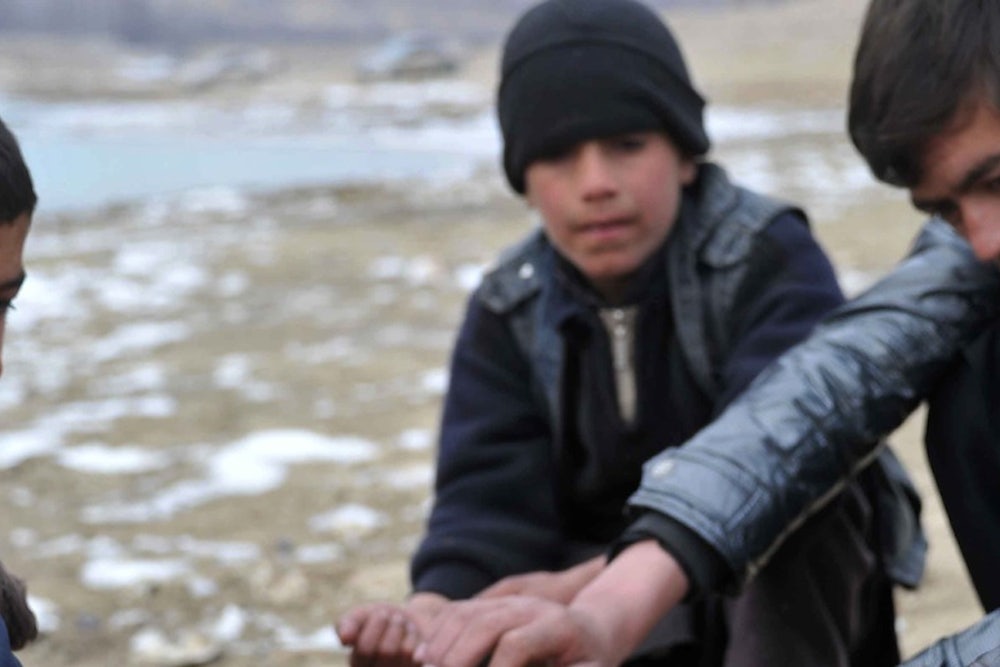The American campaign to win the “hearts and minds” of Afghan citizens hasn’t panned out so well. According to one recent survey, 56 percent of Afghans say they have a negative opinion of the U.S.’s engagement in their country. New research published in American Political Science Review shows that Afghan civilians are far more forgiving of violence perpetrated by the Taliban than by U.S. and NATO forces: Based on surveys of over 200 villages in Afghanistan, the authors of the new paper found that “harm inflicted by the International Security Assistance Force is met with reduced support for ISAF and increased support for the Taliban, but Taliban-inflicted harm does not translate into greater ISAF support.”
Is something getting lost in translation? U.S. military strategists, especially at the outset of the war, may have relied on outdated information about Afghanistan’s culture gleaned from second- and third-generation Afghan-Americans who had never been to Afghanistan and barely spoke the native language. Shortly after 9/11, the U.S. government began recruiting Afghan-Americans to help them understand Afghanistan—but there was a problem.
“The younger generations of the diaspora base their knowledge on the beliefs and experiences of their parents and grandparents,” explains Kabul-born Oxford anthropologist Morwari Zafar. “Their narratives are often secondary accounts and can be irrelevant to the current situation.”
Zafar has spent the last year studying how the U.S.’s reliance on the Afghan diaspora has misled American policy in Afghanistan. She travels between Washington D.C., where she interviews U.S. military personnel, and the San Francisco Bay Area, which has the highest concentration of Afghan-Americans in the U.S.
“U.S. military personnel often note that the human terrain or cultural training they received did not necessarily match with the reality they experienced once they deployed to Afghanistan,” she said.
Alice Robb: What misconceptions about Afghanistan are being perpetuated?
Morwari Zafar: One common misconception is the belief that Afghanistan is “tribal” and therefore highly susceptible to constant conflict. In reality, only about 40 percent of the population—the Pashtuns—are organized into clans and tribes. Such misconceptions reify the belief that the conflict in Afghanistan stems from tribal rivalries and ethnic animosities, rather than deep-seated political issues emanating from a long history of foreign invasions and proxy wars.
There are other misconceptions that have worked their way into interactions between Americans and Afghans in Afghanistan. For example, military personnel are often taught that using your left hand for activities such as eating is considered socially inappropriate. However, using the left hand doesn’t have the same meaning among Afghans as it does for certain Arab Muslims (that the left hand is used to clean one’s self and is therefore seen as dirty).
AR: How have these misconceptions affected U.S. policy?
MZ: U.S. military personnel in Afghanistan are unprepared for the cultural realities they find there. One American military analyst, who had received two iterations of cultural awareness training, found the local community in eastern Afghanistan was far less culturally conservative than he had been led to believe by his Afghan-American advisors. For example, he said many of the Afghan men he met did not shy away from talking about topics he thought were “taboo”, like women and sex. Furthermore, he had observed that, in contradiction to what he had been told prior to deployment, local Afghans did not concern themselves with religious identities beyond "Muslim" or "Sunni" or "Shia."
In the earlier years of the war, the U.S. government and military employed numerous Afghan-Americans as Pashto and Dari translators. Some Afghan-Americans I interviewed, particularly second-generation ones, admitted that they did not speak either of Afghanistan’s native languages with any fluency, but passed the required language competency exams by having family members take the online tests. (Most of these tests are no longer administered online.) These “translators’” limited grasp on Pashto and Dari precluded them from conveying essential messages to military personnel and policy makers.
AR: Doesn’t the U.S. also employ anthropologists to help them understand Afghan culture?
MZ: From my observations so far, American anthropologists often perpetuate the same misconceptions as the diaspora—since that’s the population they look to as a primary source of information. Afghanistan is not the easiest place for anthropologists to conduct fieldwork.
Interestingly enough, because of the security risks, American soldiers are often the ones who spend the most amount of time observing daily life among communities in Afghanistan. Their accounts are first-hand ethnographies of sorts, but greater credibility is given to the voices of the distant diaspora and the anthropologists because their knowledge is thought of as "innate" or academic.
AR: How has the Afghan diaspora’s involvement in the U.S.’s effort affected their own communities?
MZ: Many members of the diaspora have been able to integrate in the U.S. economically by taking high-paying jobs or contracts with the Department of Defense, but some younger members of diaspora communities have become less inclined to accept ordinary jobs in the U.S. The mother of a young man who had grown up in California but returned to Afghanistan as a translator for U.S. forces complained that her son had become spoiled by the high salaries. “He doesn't even want to continue his studies,” she told me. “He's sitting at home, collecting unemployment, and waiting for the next contract to go back to Kabul. I tell him, 'Go! Study! You're young and you can have many opportunities,' but he likes the money." This was a common sentiment among many parents, whose sons and daughters reject employment and academic prospects in America in favor of easy money and authority through transnational employment.
